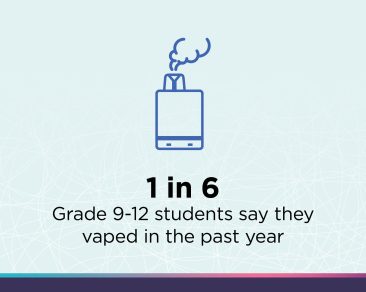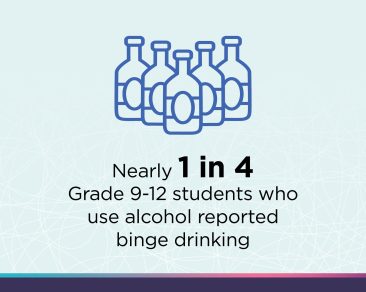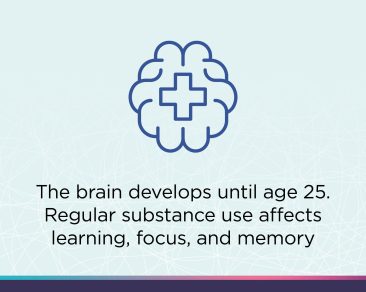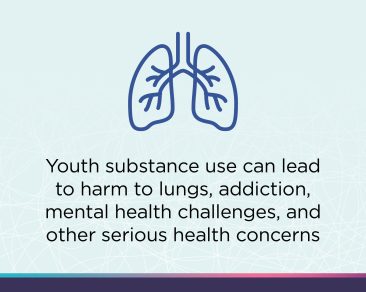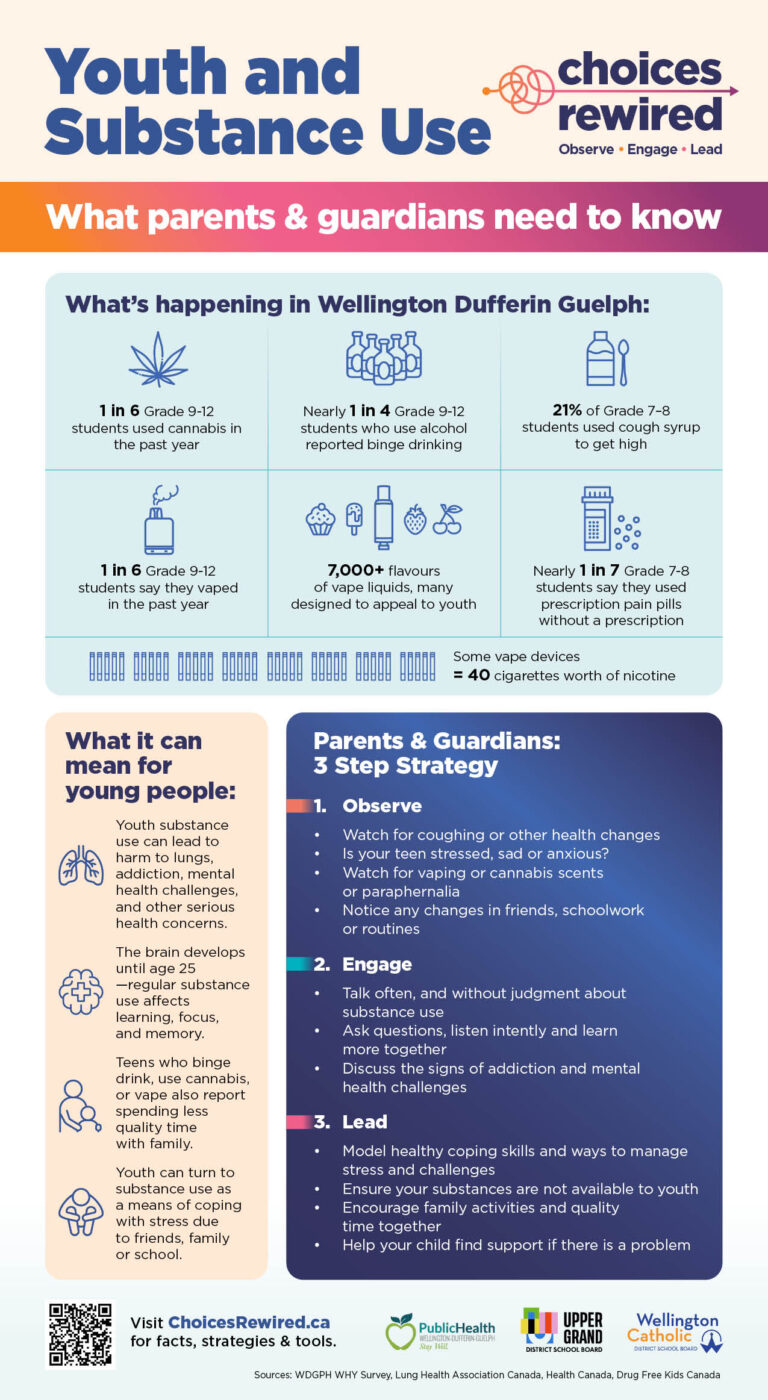Youth and Substance Use in Wellington-Dufferin-Guelph
Substance use among youth in Wellington-Dufferin-Guelph is common. Local data reveals patterns of behaviours and use of substances including vaping, cannabis, cough syrup and alcohol. Parents and guardians play a vital role in helping youth navigate these choices. Learn how to spot signs, start conversations, and lead by example.
Watch these informative videos to learn more about youth and substance use in Wellington-Dufferin-Guelph
Substance use among youth in Wellington-Dufferin-Guelph continues to be a concern. According to the Well-being and Health Youth (WHY) survey, 1 in 6 high school students report vaping, and 1 in 6 high school students also report using cannabis, while 21% of grade 7–8 students have used cough syrup to get high.
These behaviours often begin earlier than parents and guardians may expect—more than five times as many students in grades 4–6 report drinking alcohol compared to two years ago. Teens who binge drink (more than five alcoholic beverages on one occasion), use cannabis, or vape also report spending less quality time with family.
The risks are significant. Some vape devices can expose youth to as much nicotine as 40 cigarettes, which may lead to nicotine addiction, lung damage, and mental health challenges. Cannabis use before age 25 can impair memory, learning, and decision making. Prescription pain pills and over-the-counter medications like cough syrup can be very dangerous when used not as intended. Substance use can also contribute to lower school attendance, poor grades, reduced engagement in exercise or extra-curricular activities, loneliness or other risky behaviour.
Some of the reasons youth may engage in substance use:
- Peer pressure and social influence.
- Coping with stress from school, family, or relationships.
- Curiosity or exploration.
- Unaware of the risks or perceived safety.
- Easy to access harmful substances.
- Repeating or modeling behaviours they see at home.
Three action steps for parents and guardians to support youth with choices around substance use:
Observe
Pay attention to changes in your child’s behaviour, appearance, and routines. Warning signs may include:
- Coughing, wheezing, frequent illness, or unexplained drowsiness.
- Sweet or chemical scents on clothing or in rooms.
- Hidden devices or paraphernalia.
- Sudden mood swings or secrecy.
- Declining grades or school attendance.
- Missing medications, alcohol or cannabis at home.
Engage
Create a safe space for open, honest conversations. Start early and talk often. Use active listening and ask open-ended questions such as:
- “What do you know about the risks of vaping or using cannabis?”
- “Have you ever felt pressure to try something like vaping or cannabis?”
- “How do you cope when you’re stressed?”
- “Do you know you can speak with me or another adult about using substances?”
Avoid judgment and focus on empathy and understanding. Share facts and explore the risks together. Be honest about your own experiences and model vulnerability when appropriate.
Lead
Model healthy behaviours and coping strategies. Set clear expectations and boundaries:
- Store substances out of reach of youth in your home.
- Monitor the use of prescription and over-the-counter medications.
- Always return unused medications to pharmacies.
- Avoid talking about substances as rewards or coping tools.
- Encourage family activities, hobbies, and quality time together.
- Support your child in creating a quit plan if needed.
- Seek professional help or counselling when necessary.
To access the Code of Conduct for your child’s school, visit the school directory or contact the school directly:
Additional Resources - Youth and Substance Use
- WDG Public Health Youth Substance Use
- Wellington Dufferin Guelph Public Health Well-Being and Health Youth (WHY) Survey
- Centre for Addiction and Mental Health Family Resource Centre
- Centre for Addiction and Mental Health Youth-VAST (Vaping, Alcohol, Substance Use and Technology) Dependence Program
- Not An Experiment – Quit Plans
- School Mental Health Ontario By Your Side Webinar Series
- Substance (formerly Drug Free Kids Canada )
- eMental Health Canada – Addictions Resources
For links to additional resources or to find help with mental health or addiction concerns, visit the Support page.


